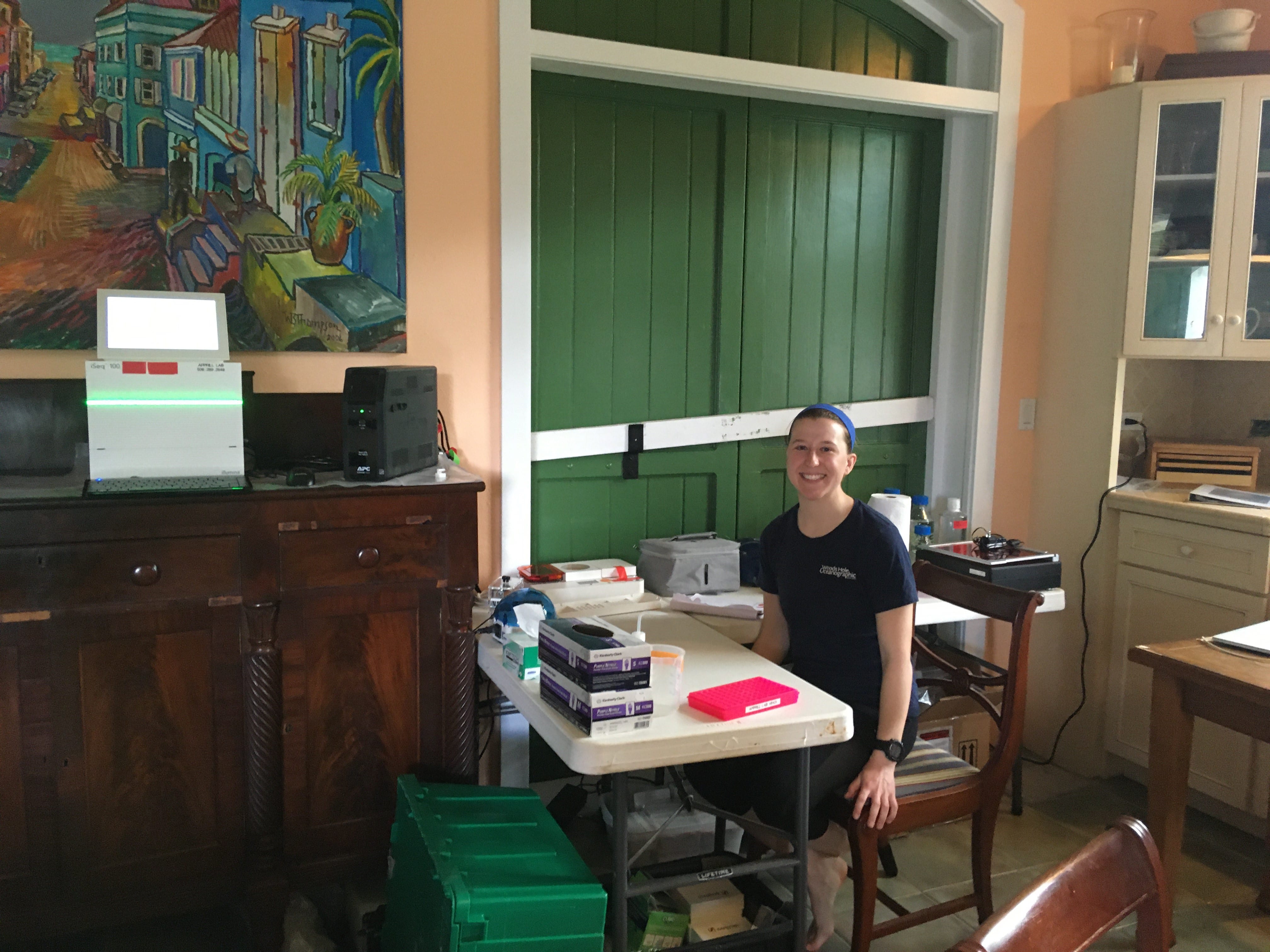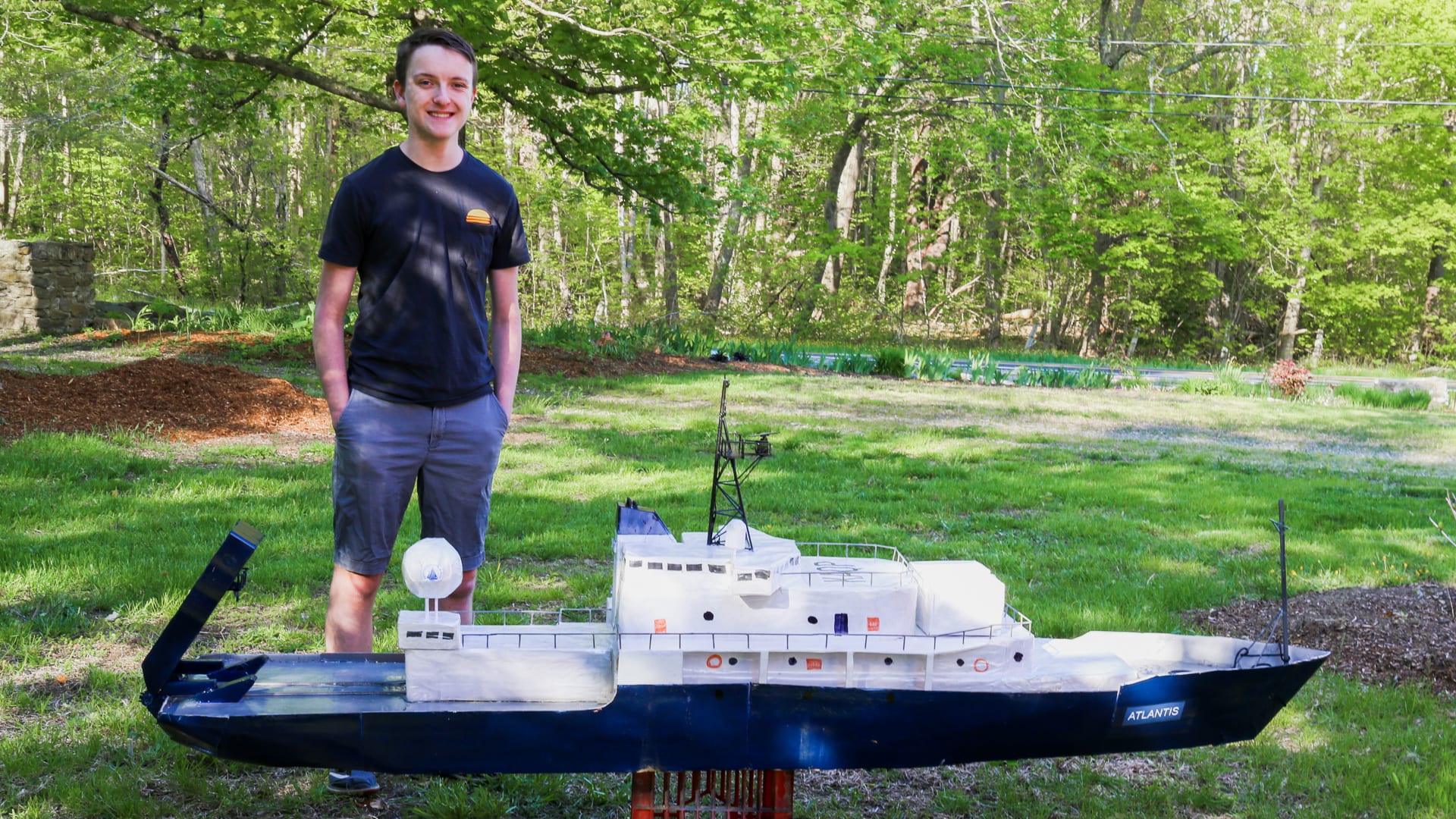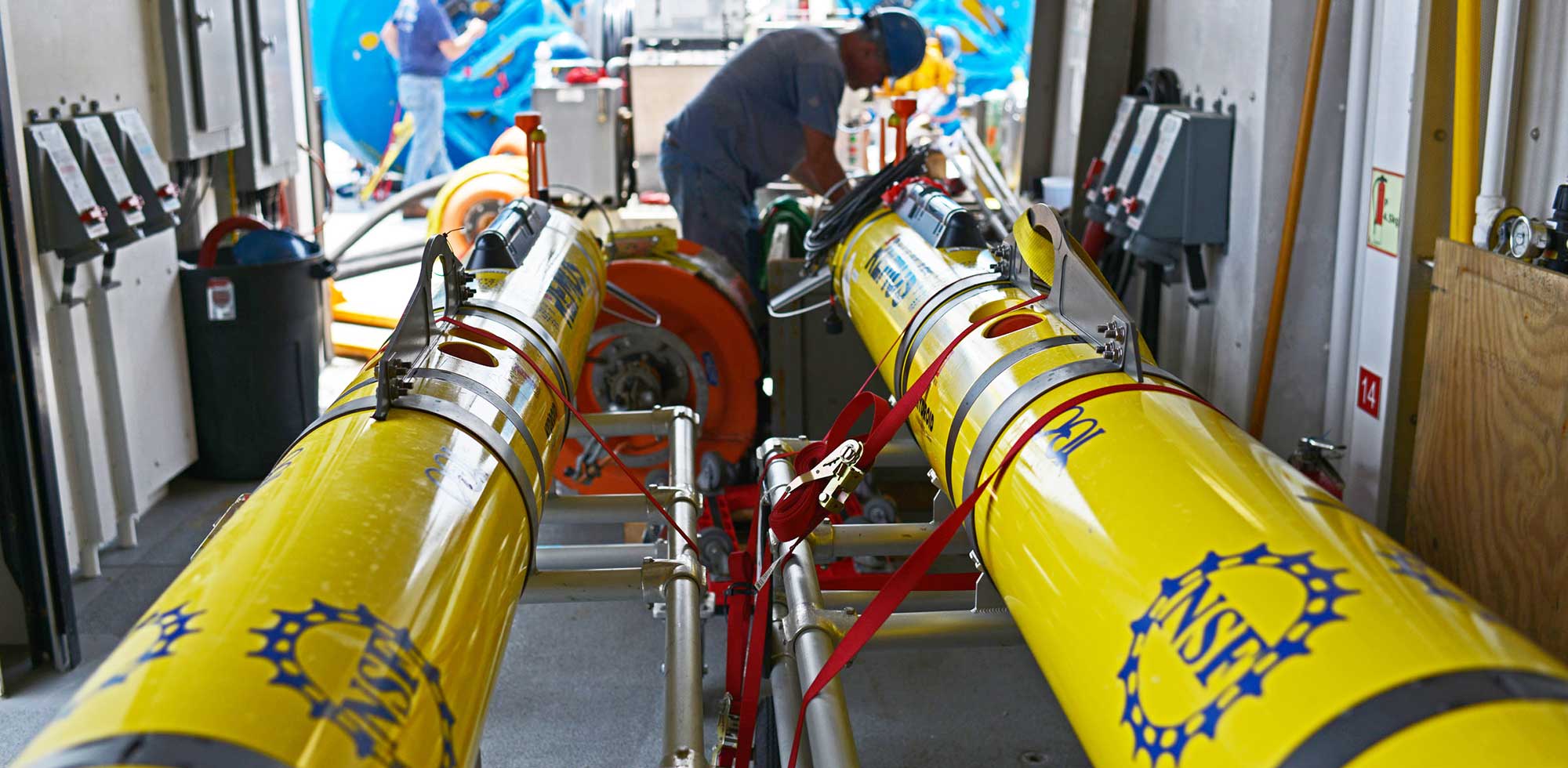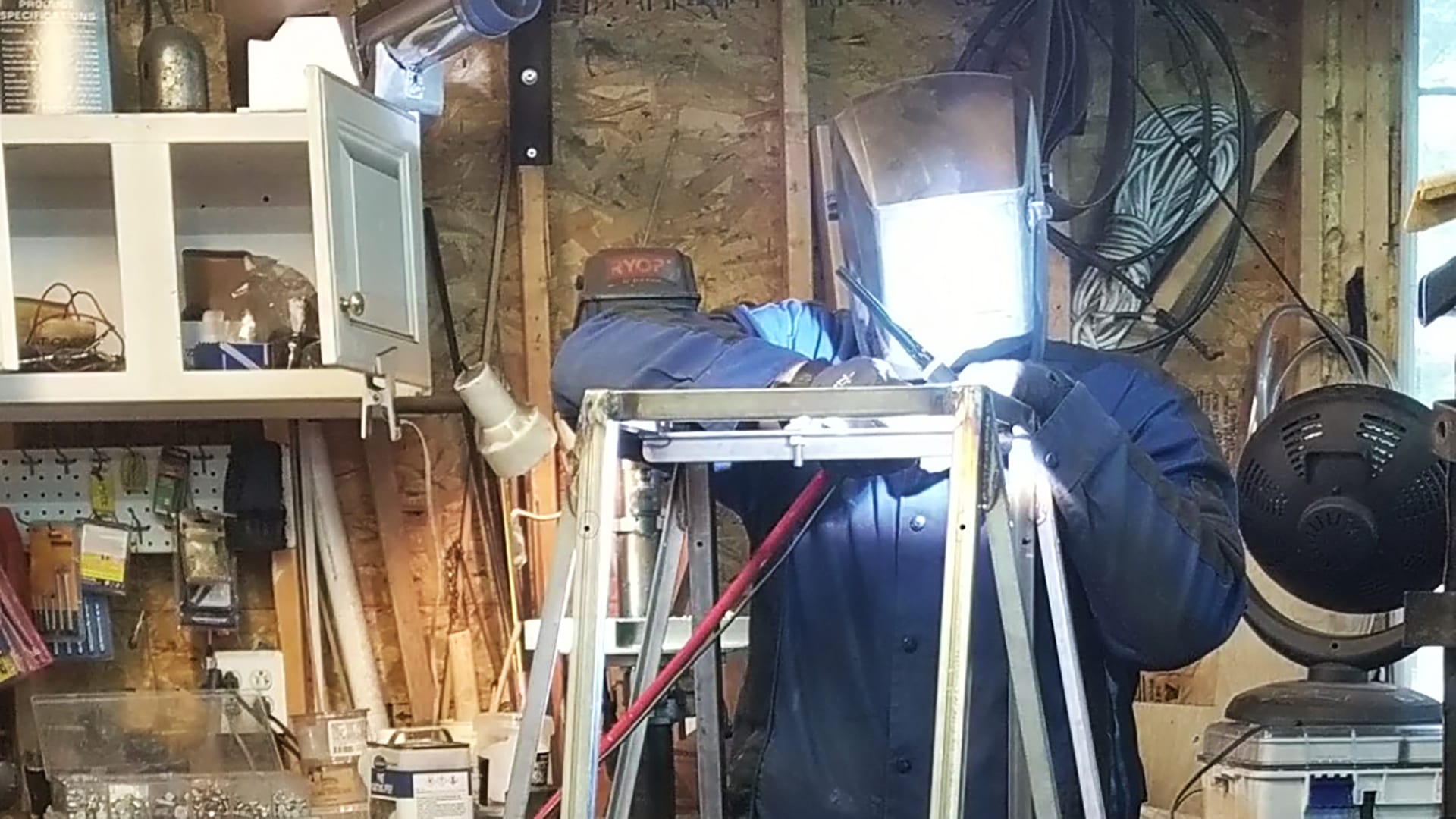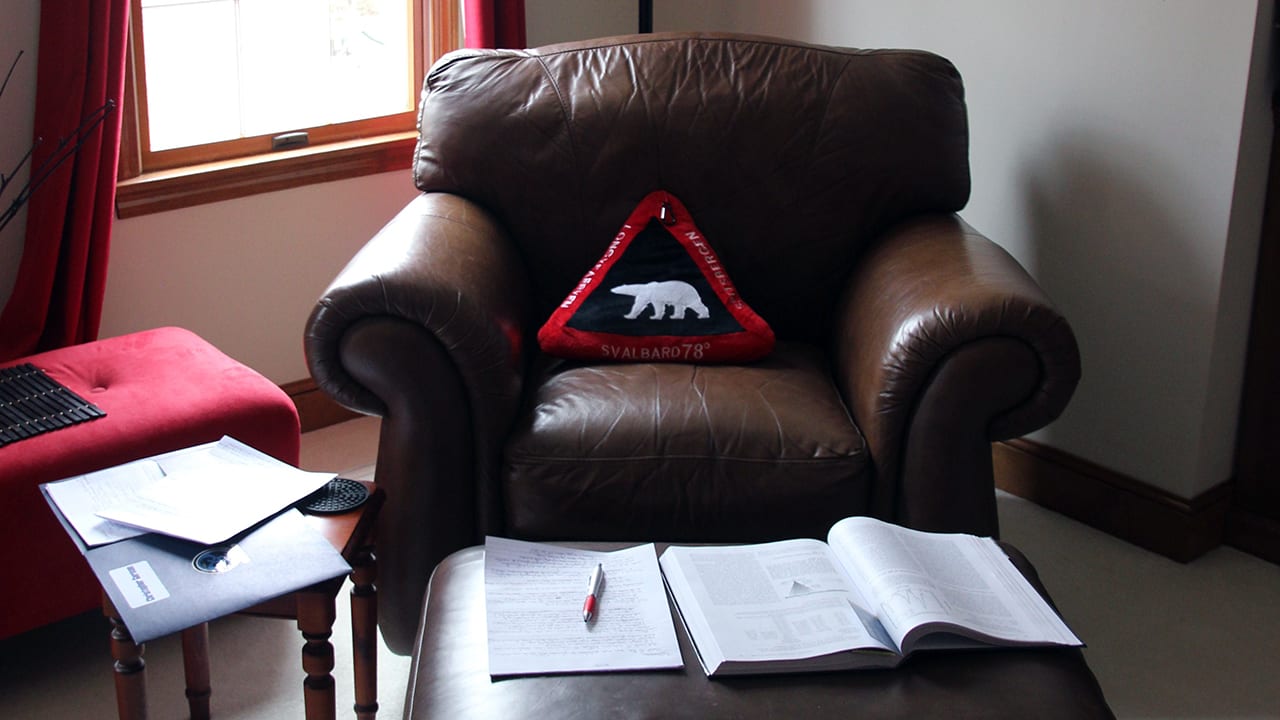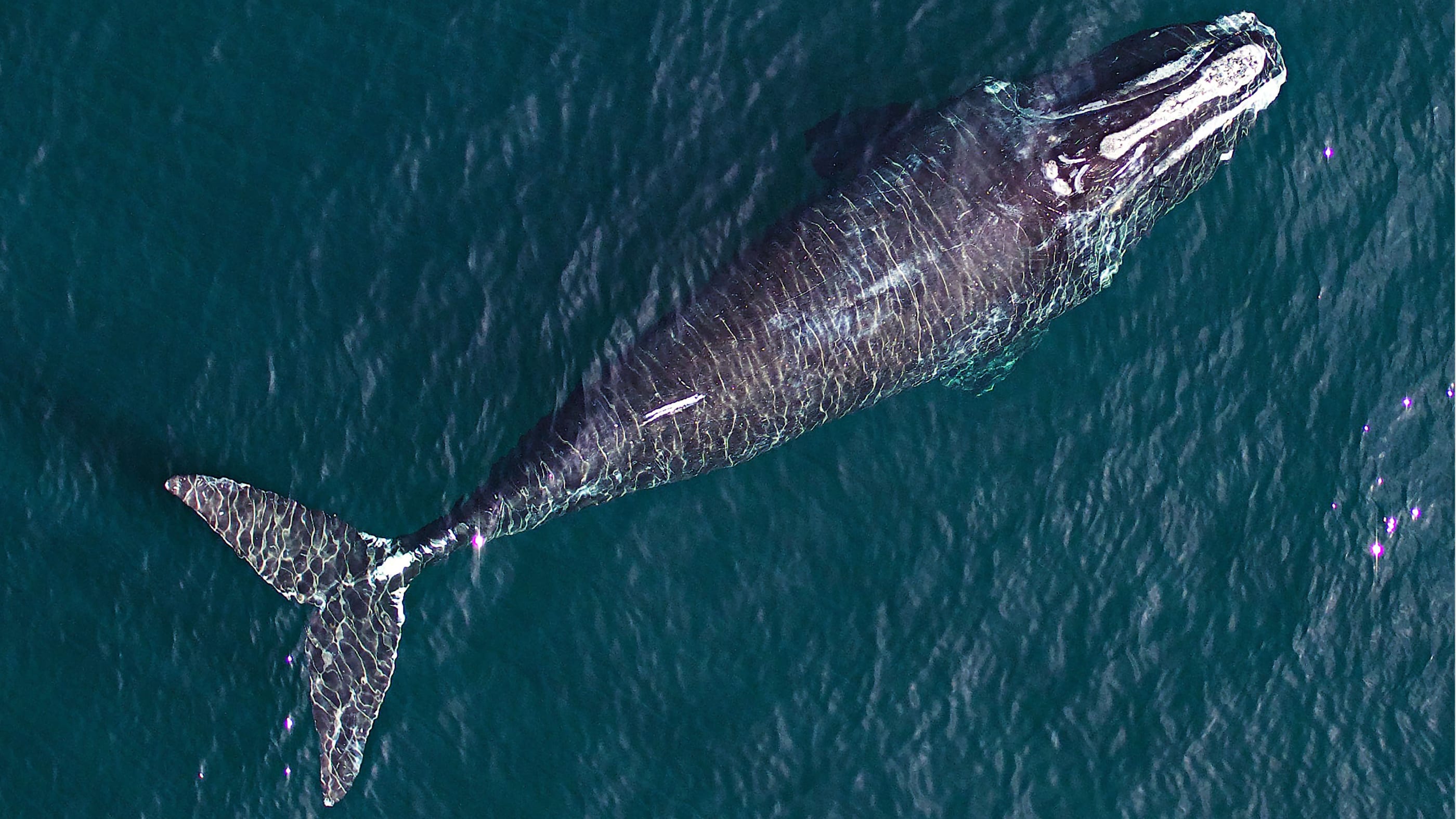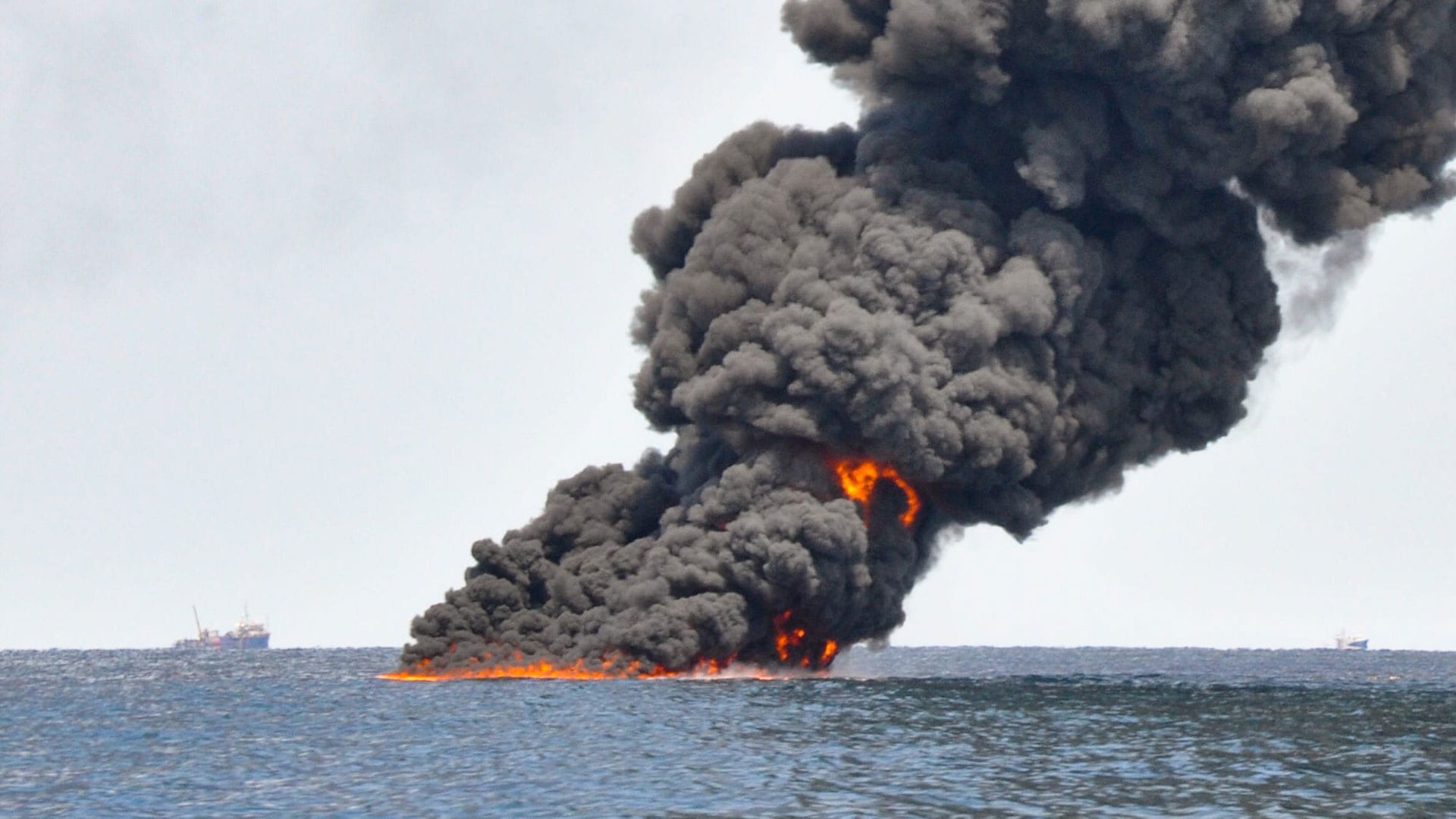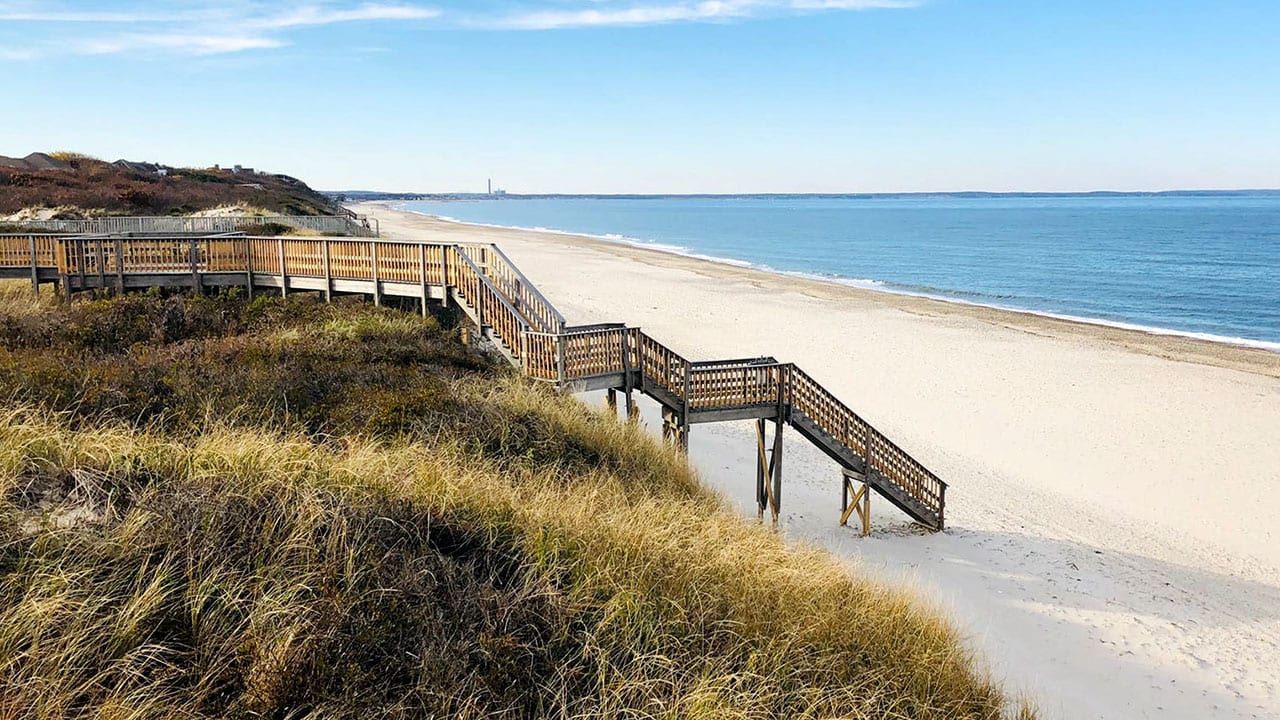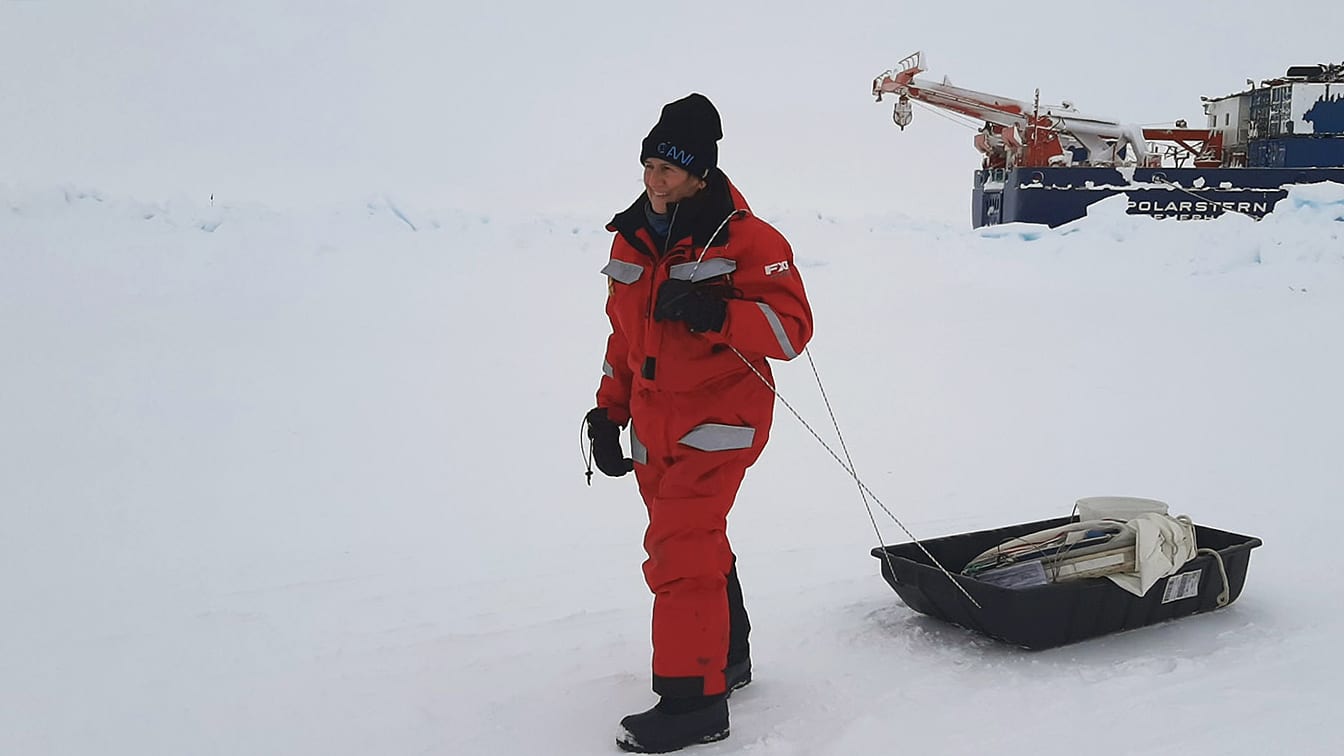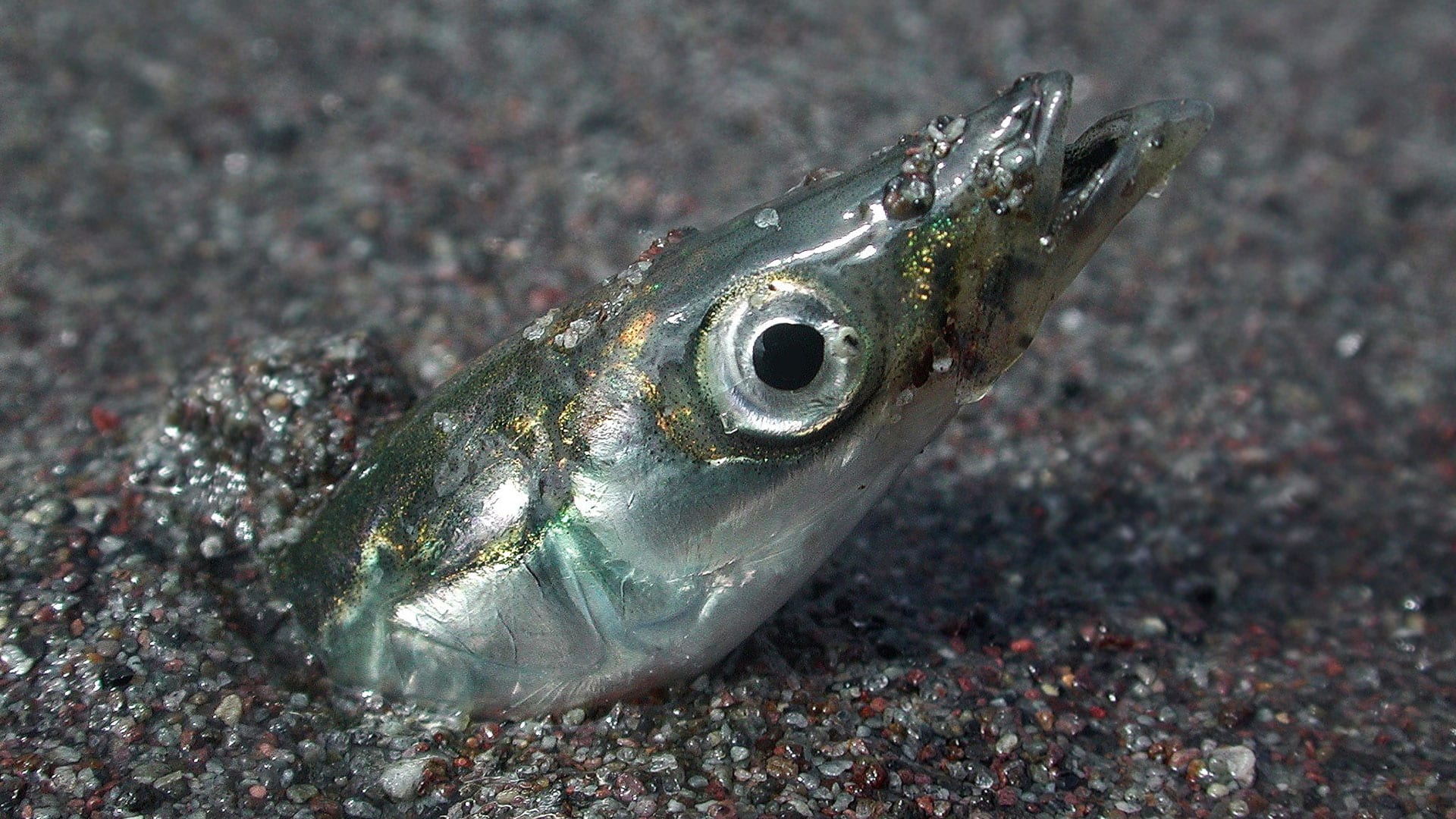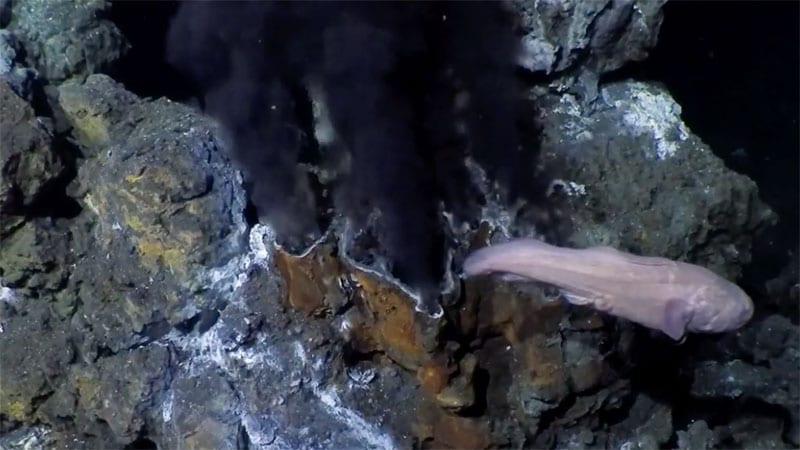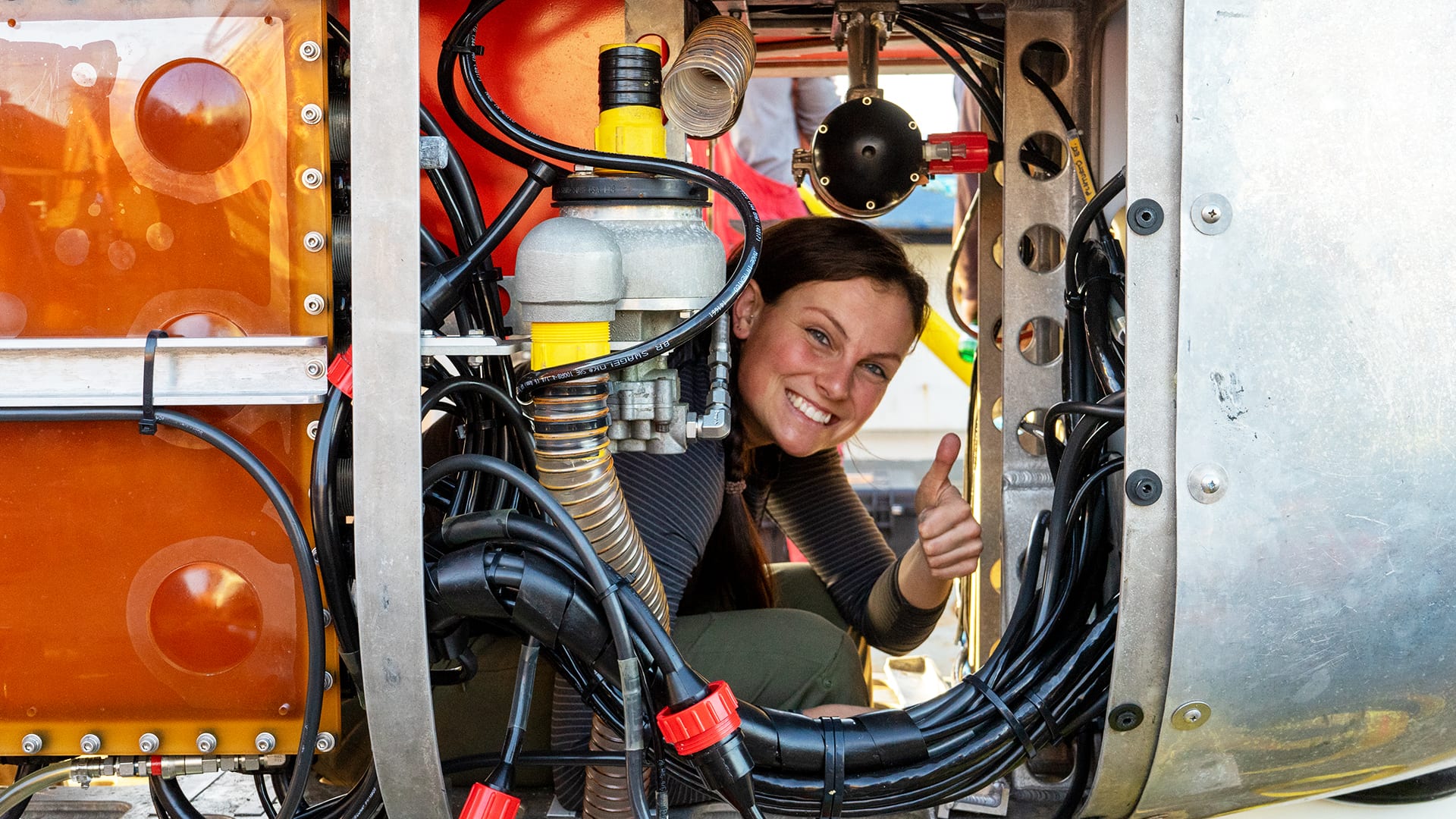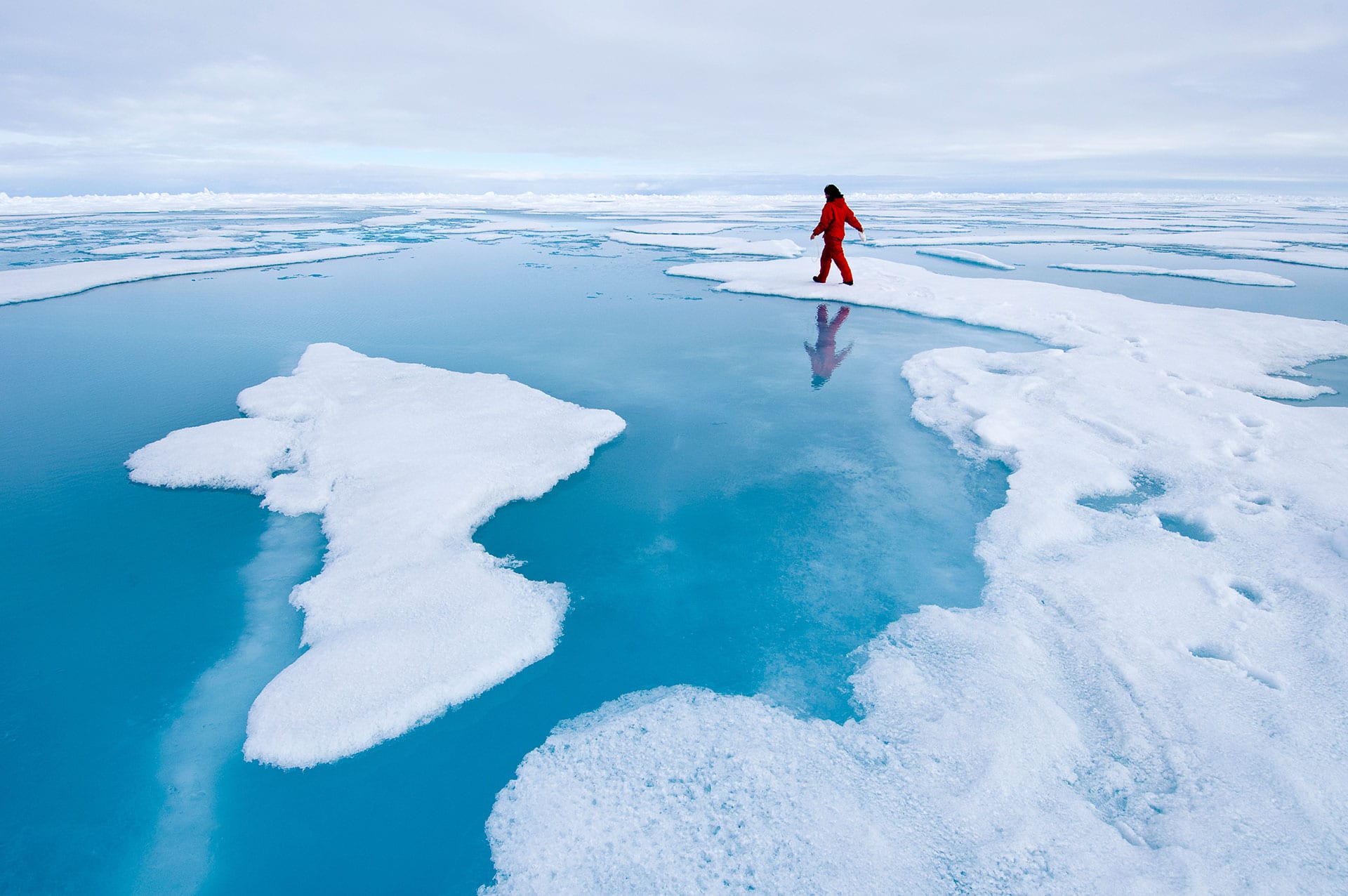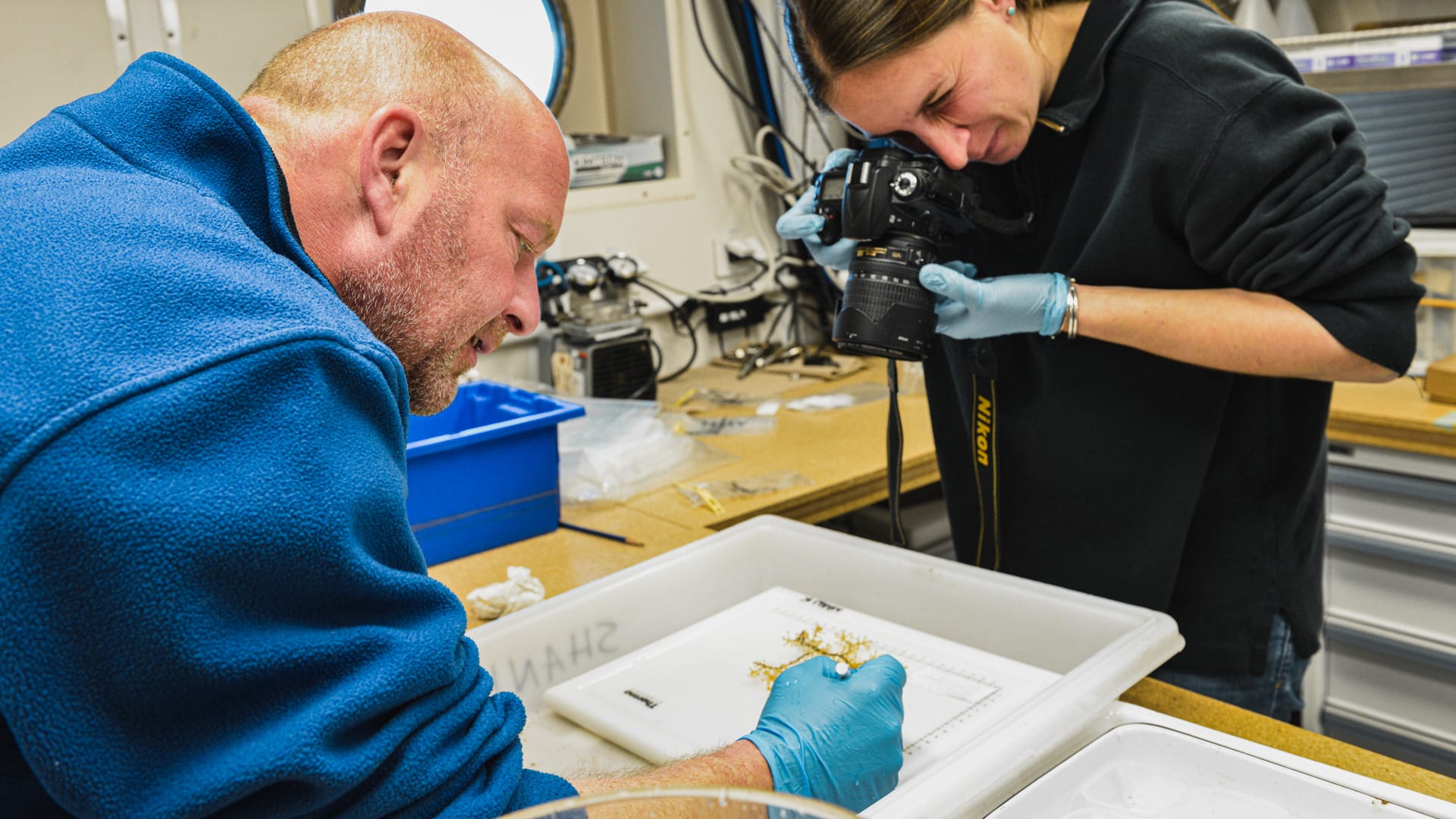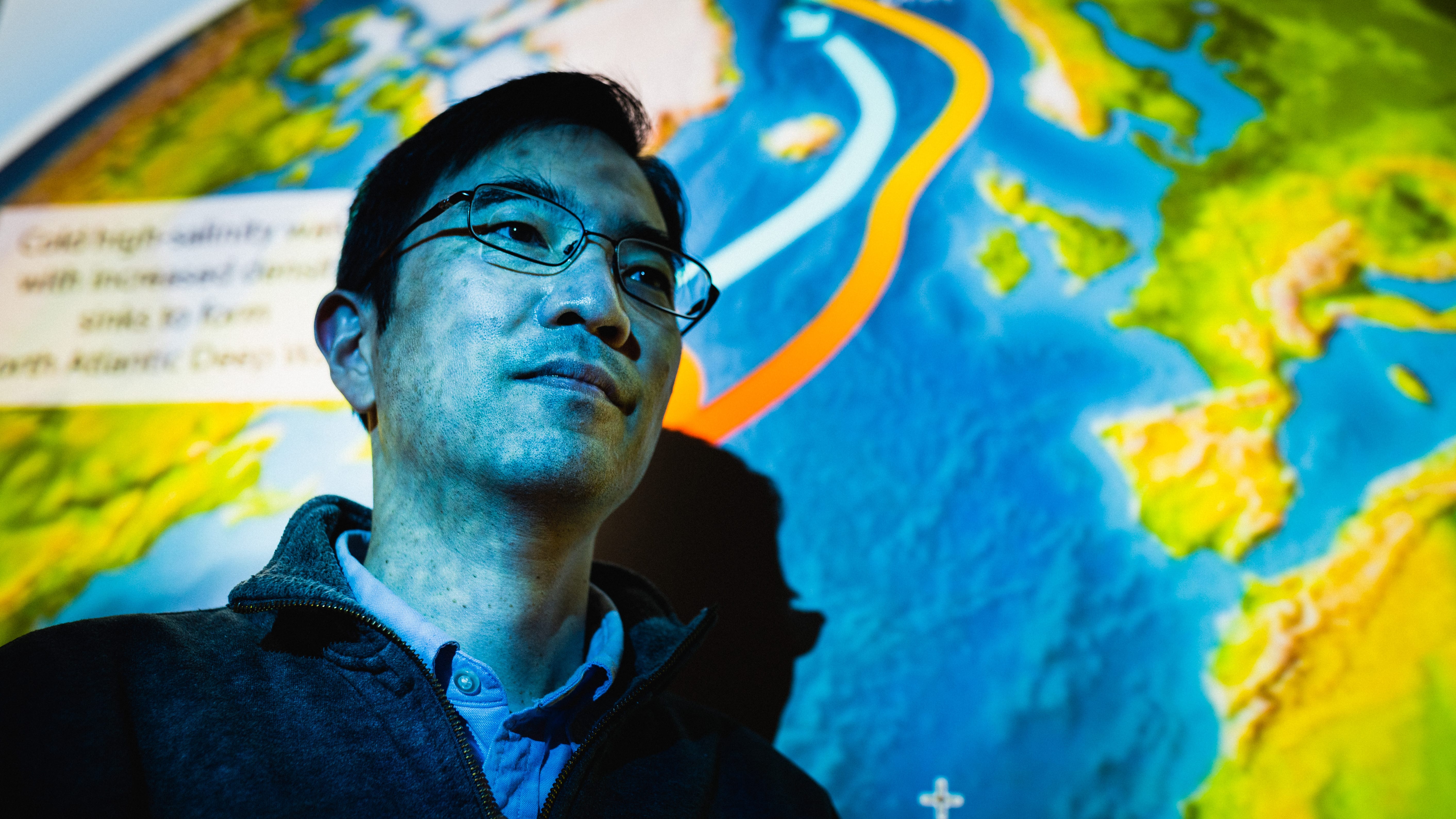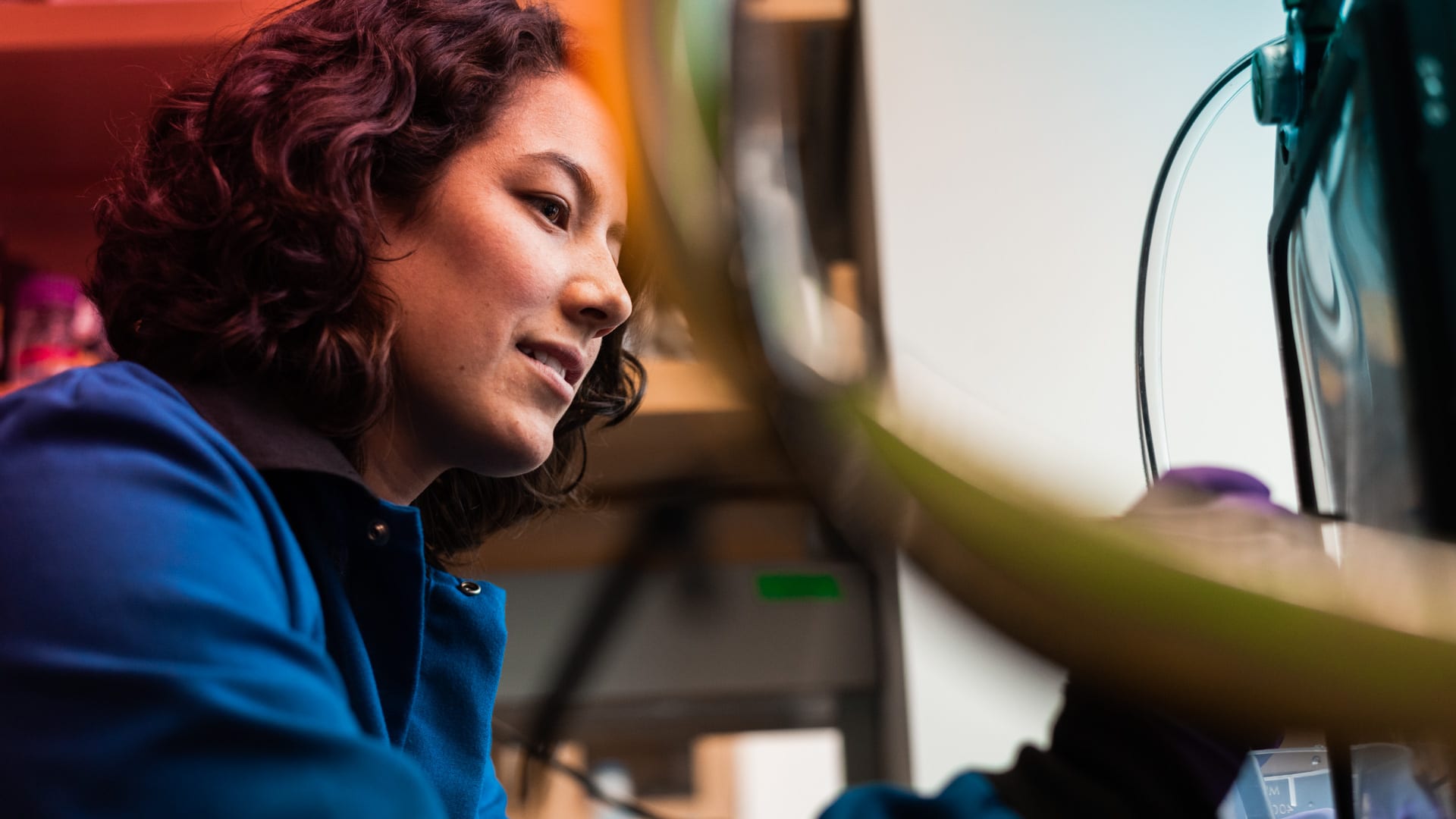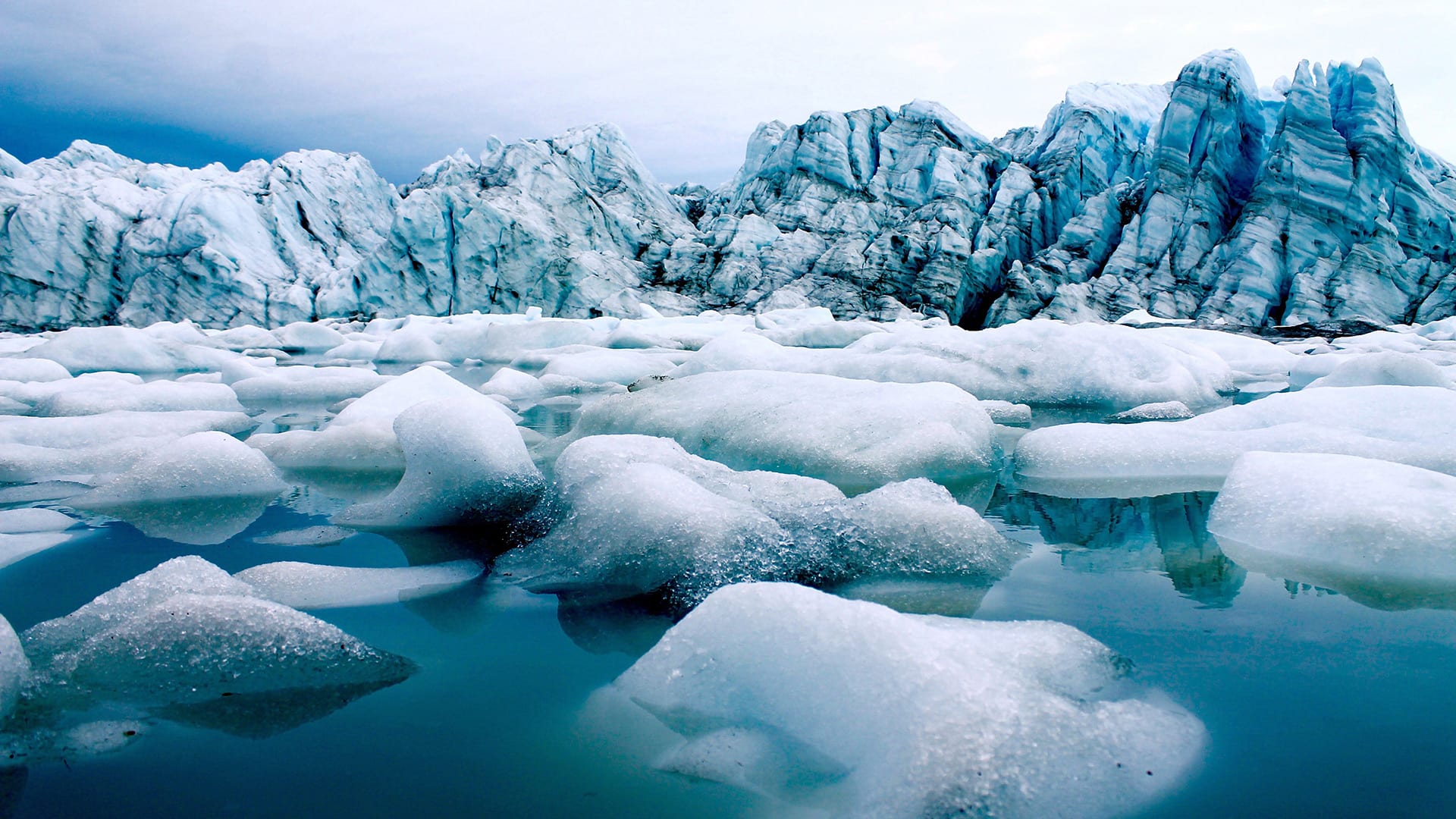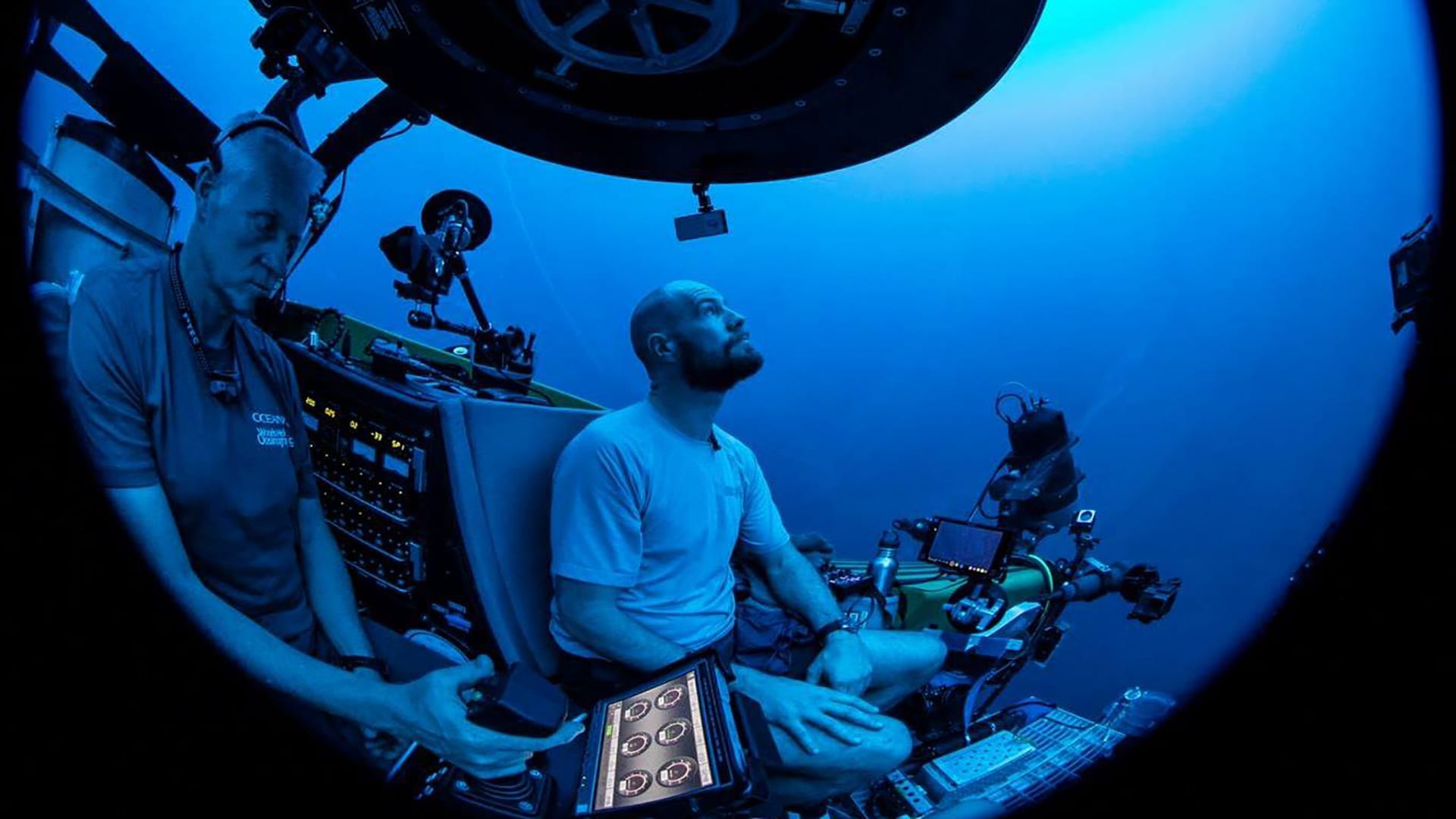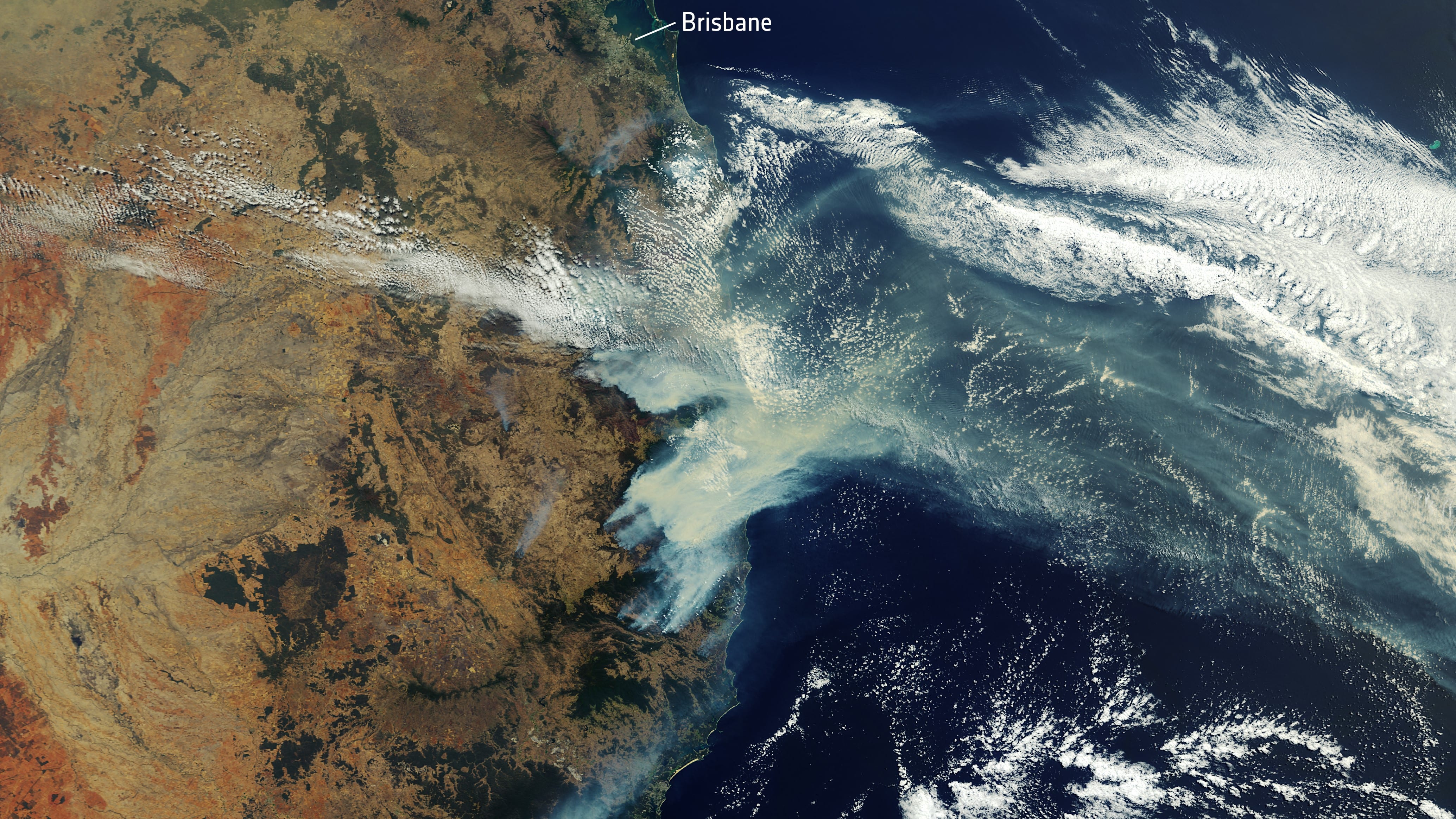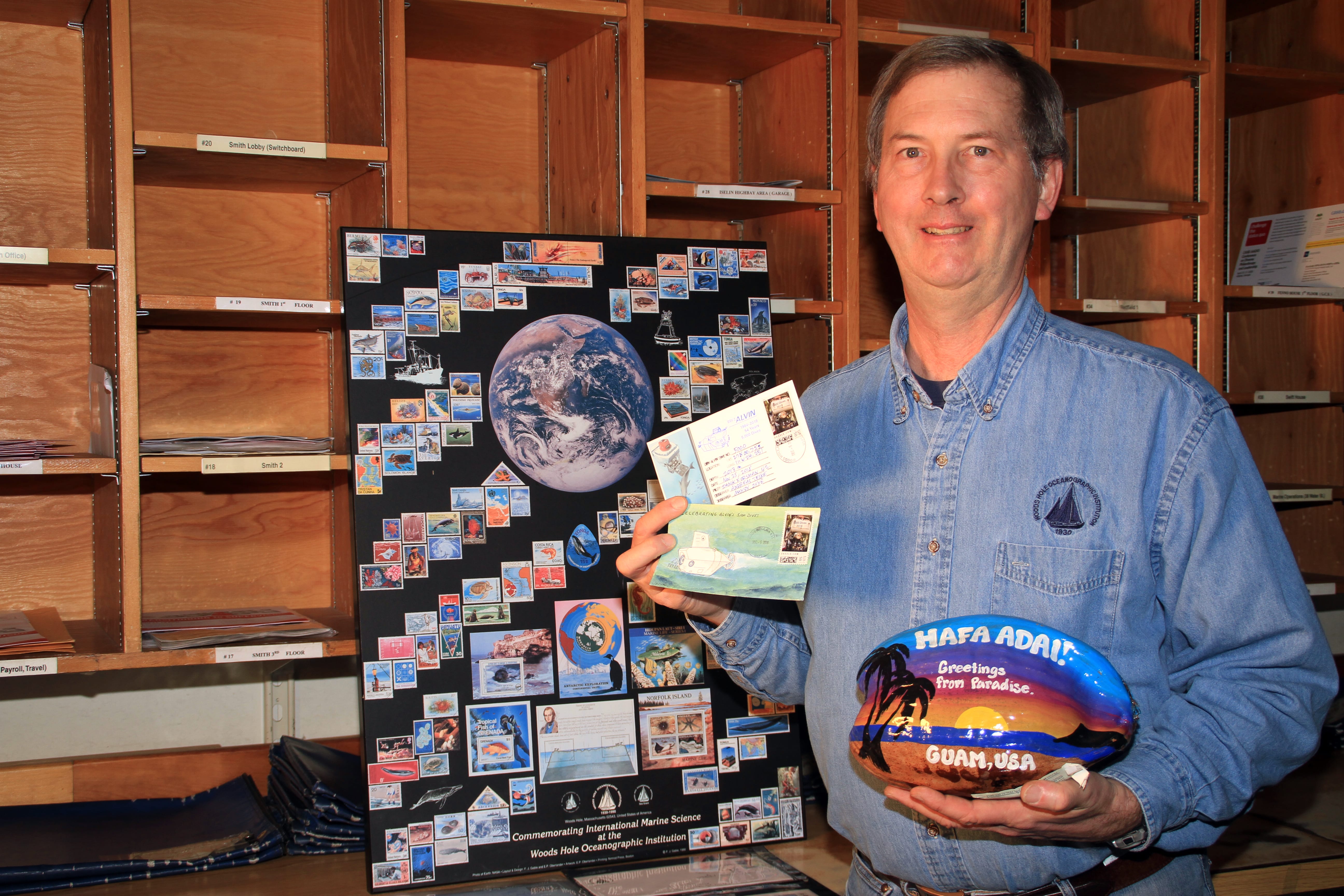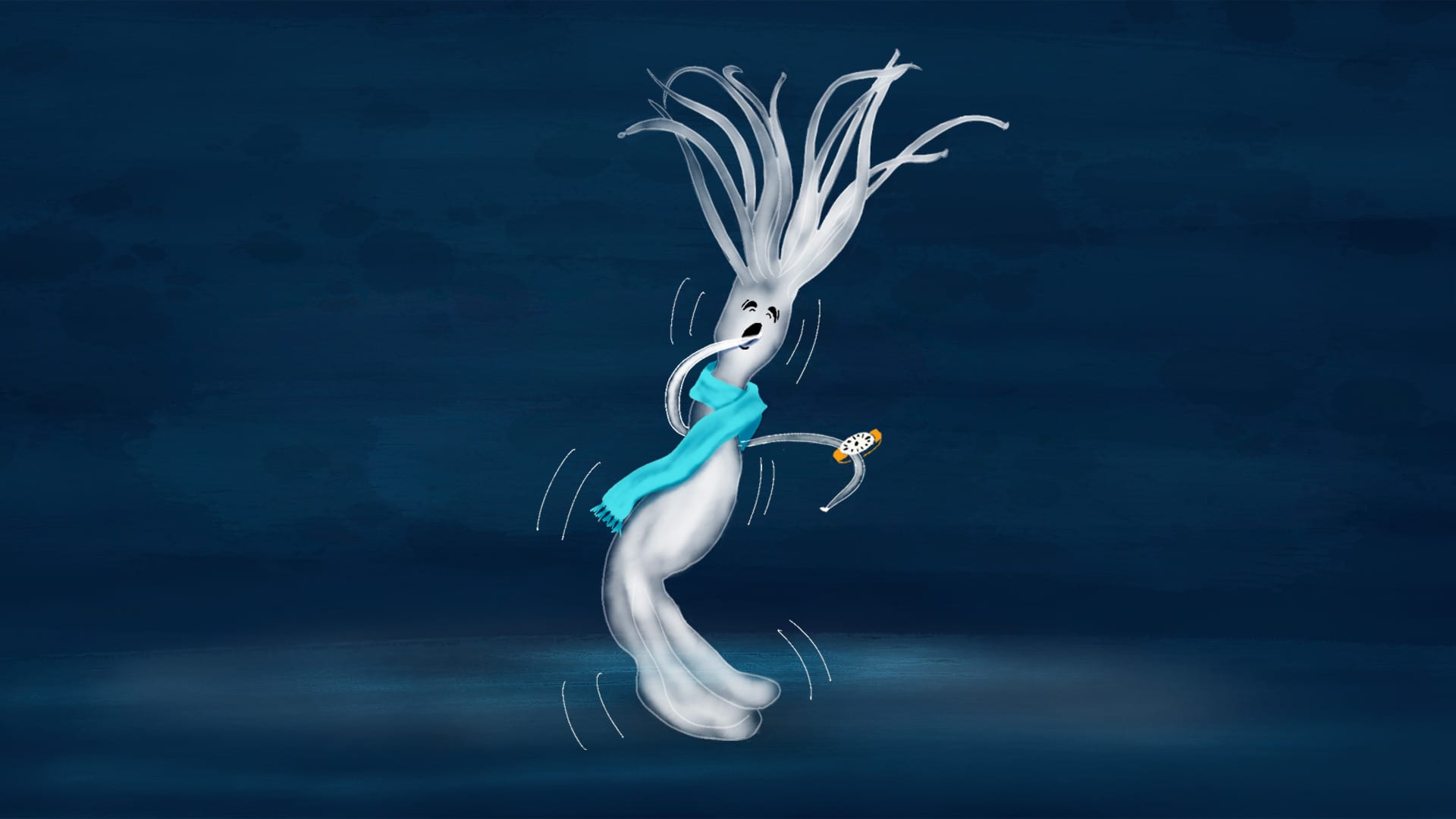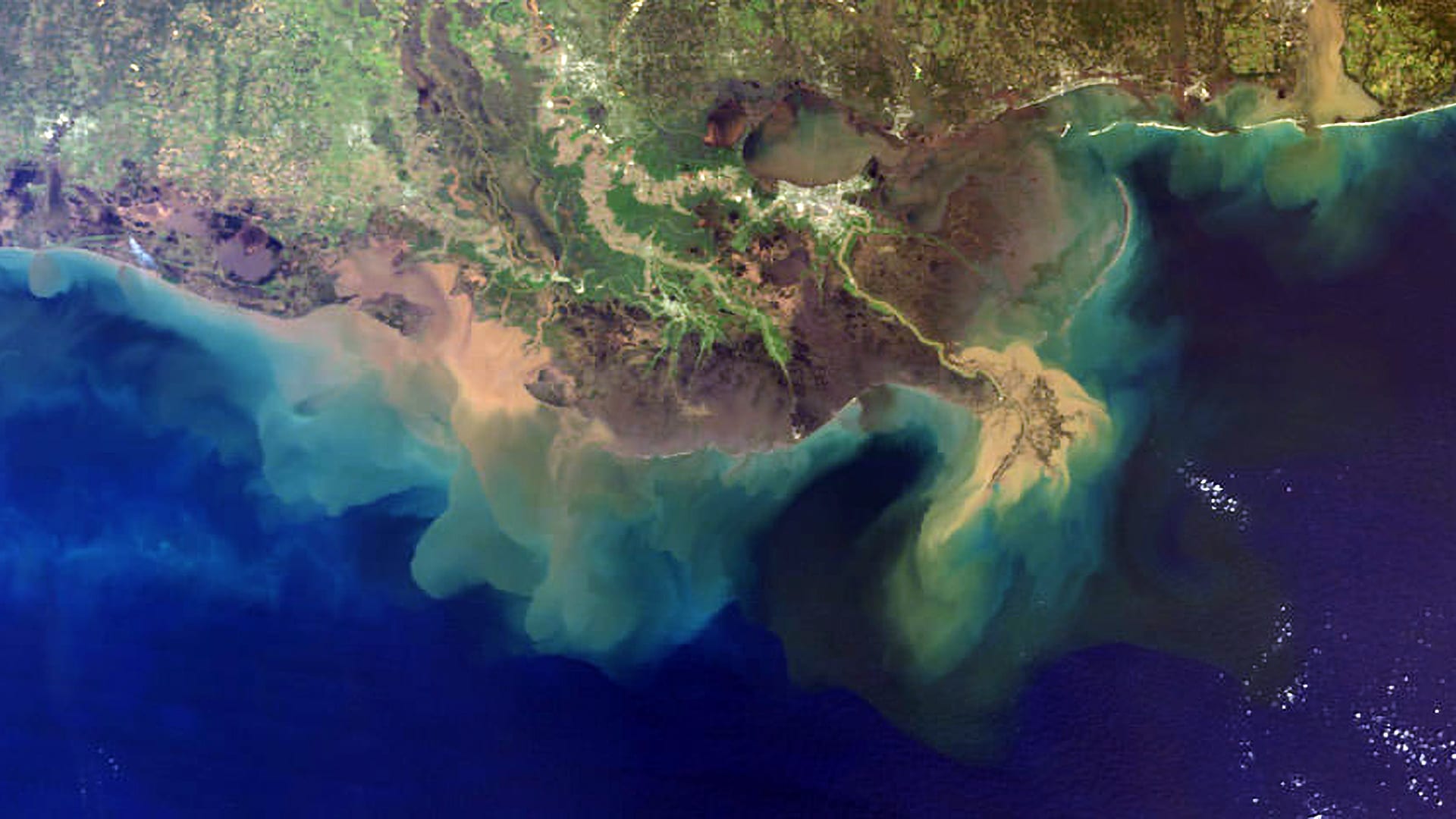News & Insights
Lab shutdowns enable speedier investigation of coral disease
Despite labs shutting down due to the COVID-19 pandemic, WHOI microbiologists are working fast to solve a different kind of outbreak—one travelling below the ocean’s surface and ravaging coral reefs from Florida to the Caribbean.
Read MoreWorking from Home: Dante Cusolito
With some mechanical skills, foam board, and an oceanographic mind, Dante Cusolito found the perfect way to spend his time at home
Read MoreWHOI wishes the National Science Foundation a Happy 70th anniversary
Statement from Rick Murray, Deputy Director and Vice President for Research, Woods Hole Oceanographic Institution WHOI manages the NSF-funded Ocean Observatories Initiative (OOI), an integrated infrastructure program composed of science-driven…
Read MoreWorking from Home: Matt Long
A marine chemist spends his time at home tinkering on a high-tech buoy in the basement, proving that being homebound doesn’t mean you can’t think big.
Read MoreWorking from home: Chris German
As I reached the end of April, I realized that too much of my time was getting consumed by zoom calls and email in a bid to over-compensate for not…
Read MoreWHOI joins effort to accelerate marine life protection technology
WHOI has teamed up with Greentown Labs and Vineyard Wind to launch the Offshore Wind Challenge. The program, which is also partnering with New England Aquarium, calls on entrepreneurs to submit proposals to collect, transmit, and analyze marine mammal monitoring data using remote technologies, such as underwater vehicles, drones, and offshore buoys.
Read MoreForged in fire: WHOI recalls the Deepwater Horizon crisis
It’s been a decade since the explosion of the BP oil rig in the Gulf of Mexico. Frontline WHOI scientists face unprecedented challenges when called to respond to the largest accidental oil spill in history.
Read MoreSummer’s coming: Will Cape Cod beaches be safe?
Beach parking lots across Cape Cod are closed to reduce the spread of COVID-19. As summertime approaches, will the beach crowds that normally show up after Memorial Day will be staying away this year? WHOI microbiologist Amy Apprill weighs in.
Read MoreImagining Home: scientist’s stay in the Arctic extended by coronavirus
WHOI biologist Carin Ashjian is aboard the icebreaker Polarstern in the Arctic as part of the year-long MOSAiC research expedition. She should be almost home by now. Instead, her stay has been extended by COVID19.
Read MoreNow you see me, now you don’t
Marine biologists tackle an unsettling mystery surrounding sand lance–eel-like, dive-bombing fish that have become a cornerstone forage species for a wide range of marine animals in the Gulf of Maine and northwest Atlantic Ocean.
Read MoreFinding medical answers in the ocean
The test being used to diagnose the novel coronavirus—and other pandemics like AIDS and SARS—was developed with the help of an enzyme isolated from a microbe found in marine hydrothermal vents as well as freshwater hot springs.
Read MoreOpening our eyes to the deep: Molly Curran
Molly Curran is a mechanical engineer in WHOI’s Deep Submergence Laboratory. She works on the design and operation of deep-sea robotic systems, including remotely operated vehicles, autonomous vehicles, and deep-sea samplers. She was the institution’s first pilot for Mesobot, WHOI’s latest autonomous robot designed to study the midwater realm known as the ocean twilight zone.
Read MoreOceans of Change
Oceans of Change WHOI scientists learn how the ocean shapes—and is shaped by—global climate By Madeline Drexler (Photo by Simon Buchou on Unsplash) “THE SEA NEVER CHANGES, AND ITS WORKS,…
Read MoreShedding light on the deep, dark canyons of the Mid-Atlantic
WHOI biologist Tim Shank discusses the exploration of deep-sea canyons throughout the Mid-Atlantic Ocean and how ecosystems there can be managed sustainably in the face of climate change and increased human pressures.
Read MoreThe future of the ocean’s conveyor belt
WHOI scientist Young-Oh Kwon discusses the state of the AMOC—the crucial North Atlantic current that regulates our planet’s climate.
Read MoreWHOI scientist selected for industry-funded accelerator program
Anna Michel, an associate scientist and early-career researcher in WHOI’s Applied Physics and Ocean Engineering Department, has been awarded a spot in the RBR2020 cohort.
Read MoreKalina Grabb studies some of the ocean’s most reactive chemicals
A marine geochemist discusses her passion for coral reefs, how volatile compounds in the ocean affect their health, and a new type of sensor that is shedding light on these interactions.
Read MoreSpock versus the volcano
Five hundred meters below the calm surface waters of the Aegean Sea off Santorini Island, Greece, lies an active submarine volcano. There, a decision-making robot equipped with artificial intelligence searches for life and danger.
Read MoreUnderstanding the Melting Arctic
Glaciologist Sarah Das explains why surface melting and runoff across Greenland’s mile-thick ice sheet sped up dramatically in the 20th and 21st centuries, showing no signs of abating.
Read MorePaul Caiger hunts for things that glow in the Ocean Twilight Zone
Paul Caiger is a fish biologist, marine photographer and postdoctoral investigator at Woods Hole Oceanographic Institution (WHOI). From the ghoulish grimace of the viperfish, to the bejeweled beauty of the strawberry squid, Caiger’s marine portraits have helped shine a light in this dark but critical ocean zone.
Read MoreInvestigating the ocean’s influence on Australia’s drought
Researchers look to the Indian Ocean for clues on how Australia’s blazing wildfires and bone-dry conditions have reached such extremes.
Read MoreStamp of approval: David DuBois highlights WHOI with special-edition pictorial postmarks
David DuBois is senior distribution assistant in the Facilities department at WHOI. An avid stamp collector, David has been involved with three Pictorial Postmarks for WHOI over the years.
Read MoreSea anemones with jet lag?
WHOI scientists investigate the internal body clocks of sea anemones to determine if fluctuating temperatures play a role in their daily rhythms.
Read MoreThe oceans are losing oxygen, and faster than we thought
WHOI scientists weigh in on a new ICUN report highlighting a 2% decline in marine oxygen levels between 1960 and 2010. The loss of oxygen has triggered an expansion of marine dead zones throughout the global ocean that has put marine life and ecosystems in peril.
Read More
